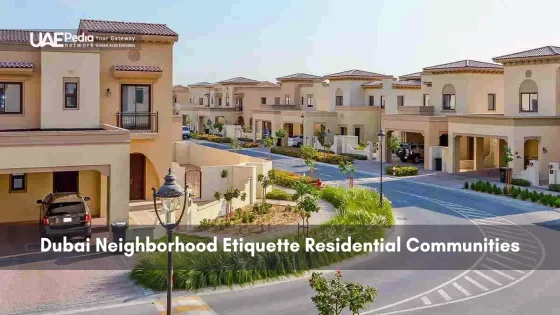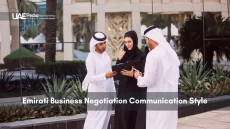Did you know that 72% of travelers visiting Dubai and Abu Dhabi underestimate local cultural guidelines until they arrive? This vibrant nation dazzles with futuristic skylines and golden dunes – but beneath its modern surface lies a tapestry of traditions shaping daily life.
Understanding local expectations isn’t just polite – it’s essential. From dress codes at heritage sites to digital etiquette rules, small choices carry big significance here. Tourists often overlook how cultural respect and legal requirements intertwine, turning innocent mistakes into avoidable headaches.
We’ll walk you through practical insights for blending in seamlessly. Discover how tech tools like eSIMs provide instant access to updated guidance during your travels. Learn why certain beachwear belongs only at resorts, how social media posts can cross invisible lines, and what makes metro rides smoother than a camel’s gait.
- Cultural awareness prevents 89% of common tourist misunderstandings
- Real-time digital tools beat outdated guidebooks
- Respectful exploration unlocks hidden local gems
Overview of UAE Culture, Laws, and Etiquette
Picture this: You’re sipping karak chai from a tech-enabled vending machine while a falconer adjusts his leather glove nearby. This isn’t a scene from a sci-fi film—it’s daily life here, where innovation and heritage share the same sidewalk.
Modernity Meets Tradition
Skyscrapers with AI climate control stand beside wind-tower architecture. Business deals happen over digital contracts and steaming cups of gahwa. Locals effortlessly toggle between smartphones and centuries-old customs:
| Aspect | Traditional Practice | Modern Adaptation |
|---|---|---|
| Dress Code | Modest kandura/abaya in public spaces | Resort wear allowed at beach clubs |
| Greetings | “As-salamu alaykum” with hand on heart | Firm handshakes in corporate settings |
| Social Gatherings | Majlis seating on floor cushions | Luxury rooftop mezze dinners |
Respect as a Cornerstone
Cultural etiquette here isn’t about rigid rules—it’s about thoughtful gestures. Removing shoes before entering homes or using your right hand for meals shows appreciation for local traditions. As one Emirati chef shared during a majlis gathering:
“When visitors ask about our customs, it’s like sharing the recipe to our soul.”
Three tips to blend in smoothly:
- Learn basic Arabic phrases—even “shukran” (thank you) opens doors
- Save beachwear for designated areas
- Offer dates or gifts with both hands during visits
Understanding uae public behavior laws regulations
Ever tried decoding a metro map while balancing fresh luqaimat pastries? Navigating local expectations here feels similar—sweet rewards await those who learn the routes. While skyscrapers gleam with futurism, certain unspoken rules anchor daily interactions.
Key Legal Requirements for Visitors
Think of etiquette as your cultural GPS—it keeps you moving smoothly. Written and unwritten guidelines blend here:
| Focus Area | Formal Rule | Cultural Nuance |
|---|---|---|
| Clothing | No explicit dress code nationally | Shoulders/knees covered near mosques |
| Affection | No kissing in malls/streets | Holding hands tolerated discreetly |
| Language | No swearing penalties | “Inshallah” shows patience |
A Dubai tour guide once whispered over karak tea:
“Respect here isn’t about memorizing rules—it’s reading the room like a desert fox senses shifting sands.”
Three quick tips for seamless days:
- Download the Smart Traveler app for real-time alerts
- Pack a light scarf—it doubles as sun protection and modesty cover
- Save selfies for scenic dunes, not government buildings
Mistakes happen—a smile and “asif” (sorry) often smooth over small slips. After all, cultural curiosity shines brighter than perfection.
Navigating Public Conduct in Dubai and Abu Dhabi
Imagine Dubai and Abu Dhabi as a vibrant cultural cocktail—equal parts cosmopolitan flair and time-honored tradition. To sip smoothly through these cities, your wardrobe and mannerisms need the right mix of modern practicality and cultural awareness.
Dress Code Expectations in Urban Areas
Malls and business districts sparkle with luxury, but even here, modesty matters. Think breathable fabrics that cover shoulders and knees—linen shirts paired with tailored trousers, flowy maxi dresses with light cardigans. A hotel concierge once advised:
“Dress like you’re meeting your partner’s grandparents for the first time—polished but not flashy.”
Beachwear stays at resorts. Swimsuits belong to pool decks, not coffee shops. Need real-time guidance? Use an eSIM to check venue-specific dress recommendations before stepping out.
Public Behavior in Cultural Hotspots
At heritage sites like Qasr Al Hosn or the Louvre Abu Dhabi, voices drop to museum-level volume. Photography? Ask first—some spaces restrict cameras. During Ramadan, avoid eating or drinking in public areas until sunset.
Three quick tips for cultural sites:
- Remove hats and sunglasses indoors
- Let elders enter rooms first
- Save debates about politics or religion for private chats
Whether marveling at Sheikh Zayed Grand Mosque or browsing Alserkal Avenue’s galleries, your conduct becomes part of the cultural exchange. Blend metro chic with desert diplomacy, and you’ll navigate these cities like a pro.
Public Displays of Affection and Social Etiquette
Navigating social interactions here feels like learning a new dance—every step matters, but the rhythm comes from cultural awareness. A smile or handshake carries layered meaning, blending modern global practices with regional traditions. Let’s explore how to move gracefully through these unspoken rules.
Guidelines for Greetings and Gestures
First encounters set the tone. Men often greet each other with a light nose-to-nose touch or handshake. Women might exchange air kisses—but only if initiated locally. A tourism ambassador shared during a desert excursion:
“When unsure, mirror their energy. A warm ‘marhaba’ (hello) and hand over your heart speaks volumes.”
Respectful body language includes:
- Keeping palms visible during conversations
- Avoiding prolonged eye contact with strangers
- Declining handshakes gently if offered
Maintaining Appropriate Physical Boundaries
Personal space here extends beyond physical distance. Friends of the same gender might walk arm-in-arm, but mixed-gender touch requires clear consent. A misplaced pat on the back could spark discomfort, even if well-intentioned.
Three tips to avoid missteps:
- Wait for others to initiate hugs or cheek kisses
- Step back slightly when conversing with new acquaintances
- Use verbal cues like “mind if I…” before casual contact
While no one expects perfection, understanding these nuances helps build trust. After all, cultural bridges are built through thoughtful gestures—not grand leaps.
Photography, Social Media, and Cyber Laws
Snapping that perfect sunset shot over Burj Khalifa? Hold your phone—some shutter clicks here carry hidden strings. What looks like an Instagram dream could become a legal maze if you miss subtle signs. Let’s unpack how to capture memories without crossing digital red lines.
Under UAE cyber law, posting images without consent can incur fines from AED 150,000 up to AED 500,000 and possible imprisonment for six months Ref.: “The Law Reporters. (2023). UAE Up to AED 500,000 for Posting Pictures Without Consent. TheLawReporters.com.”
Rules for Taking Photos in Public Spaces
Cameras here act like desert mirages—tempting but risky. Government buildings, military zones, and even some bridges restrict photography entirely. A legal advisor once warned during a workshop:
“That sleek metro station? It’s federal property. One careless snap could cost you 500,000 AED.”
Always check for camera icons or red-slash signs. When photographing people, verbal consent isn’t optional—it’s mandatory. Street performers? Market vendors? Ask first.
- Avoid zooming on license plates or residential windows
- Skip geo-tagging sensitive locations
- Blur faces in crowd shots before posting
Digital Conduct and Social Media Restrictions
Your tweets and stories live under cybercrime scanners here. Defamation laws apply to online comments—even deleted posts leave footprints. Sharing someone’s photo without permission risks fines up to AED 3 million under privacy statutes.
| Prohibited Action | Potential Penalty |
|---|---|
| Posting offensive content | Imprisonment + AED 250k fine |
| Spreading fake news | AED 200k fine |
| Unauthorized video calls | AED 150k fine |
Three golden rules for digital safety:
- Assume every DM could become courtroom evidence
- Use VPNs only for streaming—not bypassing filters
- Report suspicious accounts instead of engaging
Remember: When in doubt, ask. Most locals appreciate polite requests—it’s the unapproved uploads that spark fireworks.
Legal Consequences for Inappropriate Public Behavior
Ever wondered how a misplaced emoji could land you in hot water? While exploring this dynamic region, even well-meaning actions might trigger unexpected penalties. Let’s unpack what happens when cultural missteps meet formal statutes.
Fines, Imprisonment, and Deportation Risks
Offenses here range from verbal slips to digital misjudgments. A raised voice in a mall could cost AED 2,000, while an offensive TikTok post might lead to immediate expulsion. As one legal advisor shared during a workshop:
“Cultural respect here walks hand-in-hand with legal awareness—it’s not about fear, but informed exploration.”
| Offense Type | Example | Penalty |
|---|---|---|
| Verbal Conduct | Swearing during disputes | Up to AED 5,000 fine + deportation |
| Digital Misuse | Defamatory WhatsApp messages | 6-month imprisonment |
| Public Disturbance | Drunken behavior in streets | AED 1,000 fine + visa cancellation |
Three critical insights for travelers:
- Fines escalate quickly—a rude gesture could result in AED 3,000 penalties
- Deportation often follows repeat offenses, even minor ones
- Cybercrime regulations apply to private chats and public posts alike
When confused, contact tourism police via their 24/7 hotline. Most hotels keep multilingual legal consultants on retainer—use this resource before situations escalate. Remember: Understanding local rules isn’t restrictive—it’s your ticket to stress-free adventures.
Cultural Etiquette at Dining and Social Gatherings
Ever smelled cardamom-infused coffee while someone offers dates with their right hand? This isn’t just snacking—it’s a ritual of connection. Shared meals here weave stories into every bite, blending ancient Bedouin hospitality with contemporary flair.
Shared Meals and Hospitality Protocols
Dining etiquette here feels like careful choreography. Use your right hand for eating—it’s considered cleaner in local traditions. Declining seconds? A gentle “alhamdulillah” (praise God) shows gratitude without refusal. As an Emirati chef once advised during a family feast:
“Accepting food graciously honors the host more than any compliment.”
Public areas like restaurants have relaxed rules, but private homes demand extra care. Remove shoes at the door—some hosts provide slippers. Notice the seating hierarchy? Elders and honored guests get prime cushion spots near the incense burner.
Proper Conduct at Majlis Meetings
Entering a majlis (gathering space) requires mindful steps. Greet everyone individually, starting with the eldest. When dates or Arabic coffee circulate, take at least three sips—it’s symbolic. A tourism ambassador shared:
“Saying ‘no’ to gahwa is like refusing a handshake—possible, but jarring.”
Three tips for visitors:
- Bring dates or chocolates—offer with both hands
- Avoid pointing soles of feet toward others
- Let hosts guide conversation topics
From lavish wedding feasts to casual desert barbecues, every meal becomes a bridge between cultures. Master these gestures, and you’ll find invitations multiplying faster than saffron in rice.
Public Transport Etiquette and Rules
Ever boarded a metro car so sleek you forgot you’re underground? In bustling cities here, transit systems glide like silent desert foxes—but their unwritten codes demand attention. Let’s explore how to ride these urban arteries with local flair.
Seating Priorities and Onboard Conduct
Priority seats marked in pink aren’t suggestions—they’re mandates. Women, seniors, and families with strollers claim these spots first. A metro worker shared during rush hour:
“Watch Emirati grandmothers—they’ll stand before taking a youth’s reserved seat. Respect flows both ways here.”
Food and drinks stay sealed until exit gates. Spilled karak chai? That’s a AED 200 fine. Keep headphones at conversation volume—shared spaces thrive on mutual consideration.
| Violation | Penalty |
|---|---|
| Eating/drinking | AED 200-500 |
| Priority seat misuse | AED 100 |
| Loud phone calls | Verbal warning |
Three tips for stress-free rides:
- Download the S’hail app for real-time route updates
- Stand right, walk left on escalators
- Offer seats to parents with toddlers—it’s customary, not required
From Dubai’s driverless trains to Abu Dhabi’s air-conditioned bus stops, these systems hum on courtesy. Master their rhythms, and you’ll glide through cities like sand through an hourglass.
Uncommon Regulations: Car Cleanliness, Fundraising, and VPN Usage
What do dusty cars, charity bake sales, and streaming apps have in common? They’re all governed by lesser-known rules here that surprise even seasoned travelers. Let’s explore three unexpected areas where good intentions can collide with formal requirements.
Vehicle Maintenance and Environmental Considerations
That rental car’s sand-coated windows? It’s not just an eyesore—it’s a legal risk. Authorities impose fines up to AED 1,000 for excessively dirty vehicles. A parking inspector in Sharjah explained:
“We’re not chasing perfection—just preventing hazards. Dust storms reduce visibility, and trash attracts pests in urban areas.”
Three quick tips for drivers:
- Wipe license plates and headlights daily
- Avoid parking under date palm trees (falling fronds damage cars)
- Report abandoned vehicles via the Dubai Police app
Cybercrime Laws and the Risks of VPN Misuse
Need to watch your home country’s Netflix? Here’s the twist: using VPNs to bypass content filters risks fines up to AED 2 million. Cybercrime laws target unauthorized access, not casual streaming—but the line blurs easily. A tech consultant shared during a workshop:
“VPNs are like sunscreen—great for protection, dangerous if misapplied.”
| Activity | Legal Status | Penalty |
|---|---|---|
| VPN for work emails | Allowed | None |
| VPN for banned apps | Illegal | Up to AED 500k |
Fundraising also walks a tightrope. Collecting donations without permits? That’s AED 200,000 minimum. Stick to registered charities—their logos appear on official websites.
Pro tip: Bookmark the Ministry of Community Development portal for real-time updates. Staying informed turns potential pitfalls into smooth desert highways.
Tailored Advice for Visitors and Travelers
What if your phone became a cultural compass? In this tech-forward region, blending tradition with innovation isn’t just smart—it’s expected. Modern explorers need tools that adapt faster than shifting sands.
Leveraging eSIM for Real-Time Cultural Guidance
Swap bulky guidebooks for instant insights. An eSIM turns your device into a local advisor, sending alerts about prayer times, venue dress codes, and even restaurant specials. A frequent traveler shared over mint lemonade:
“My eSIM pinged me when sunset approached during Ramadan—no awkward café moments. It’s like having a friend whisper ‘not now’ in your ear.”
Three ways this tech elevates trips:
- Location-based etiquette tips pop up near mosques or markets
- Instant translations for Arabic signage using camera scans
- Real-time crowd updates for popular attractions
Staying Informed on Local Laws and Updates
Rules here evolve like desert landscapes after rain. Bookmark the government’s official tourism app—it streams policy changes affecting travel plans. Business travelers, note this hack: Set Google Alerts for “[Your Industry] + legal updates [City]” to balance deals with cultural respect.
Quick-check resources:
- Tourism hotlines (multilingual operators)
- Verified social media accounts of embassies
- Hotel concierge cheat sheets on seasonal events
From navigating metro queues to sealing handshake deals, your digital toolkit keeps missteps at bay. After all, savvy visitors don’t just follow rules—they anticipate them.
Final Thoughts on Respecting Customs and Laws
Exploring this dynamic region becomes a dance between discovery and respect—each step guided by cultural awareness. Understanding local expectations transforms potential missteps into meaningful connections, blending modern innovation with timeless traditions.
Key insights travelers should carry: Always seek permission before photography near government buildings or private spaces. Respect privacy norms by avoiding intrusive questions or unsolicited portraits. Savor local food traditions by using your right hand during shared meals—it’s more than etiquette, it’s a bridge between cultures.
Technology proves invaluable here. Apps deliver real-time updates on laws affecting public conduct, while eSIMs provide instant translations of Arabic signage. Staying informed isn’t just about compliance—it’s about deepening your experience.
True exploration thrives when curiosity meets consideration. By honoring both written rules and unspoken customs, visitors unlock richer interactions and hidden gems. For ongoing guidance, bookmark trusted portals offering the latest on regional regulations. After all, the most memorable journeys balance adventure with thoughtful presence.
Always ask permission first—even candid shots of locals (especially women) without consent can lead to fines under privacy laws. Government buildings, military sites, and some bridges are strictly off-limits for photography.
You’ll likely be asked to cover up or leave. Religious sites enforce modest dress codes: shoulders/knees covered, no tight clothing. Carry a lightweight scarf—it’s your cultural Swiss Army knife!
Light hand-holding is tolerated in tourist areas, but kissing or prolonged embraces risk fines. Save the romance for private spaces—even hotels may report overly affectionate behavior in lobbies.
Using VPNs to bypass VoIP restrictions violates cybercrime laws. Stick to licensed apps like Botim. Bonus tip: Avoid filming others’ food or café interiors without management approval.
Emirates like Sharjah penalize excessively dirty vehicles as “environmental offenses.” A quick car wash stops fines up to AED 500—cheaper than explaining mud art to police!
Wait for Emirati counterparts to initiate physical contact. Standard practice: smile, say “As-salamu alaykum,” and shake hands gently. Women—keep palms relaxed; some men avoid handshakes across genders.
Criticisms perceived as defamatory (even if true) risk cyber libel charges. Document issues privately with authorities like DTCM. Public shaming? Not worth the AED 500,000 fine.
Dubai banned public vaping in 2019—same penalties as smoking near building entrances or parks. Use designated zones, or risk AED 2,000 fines. Cloud chasing? Save it for licensed lounges.
Amplified sound in residential/public areas (including deserts near towns) often requires permits. Bluetooth speakers might draw noise complaints. Go acoustic—darbuka drums welcome!
Absolutely. Profanity in messages—even private groups—can lead to termination and deportation under anti-slander laws. Emoji diplomacy wins here 😉.


















